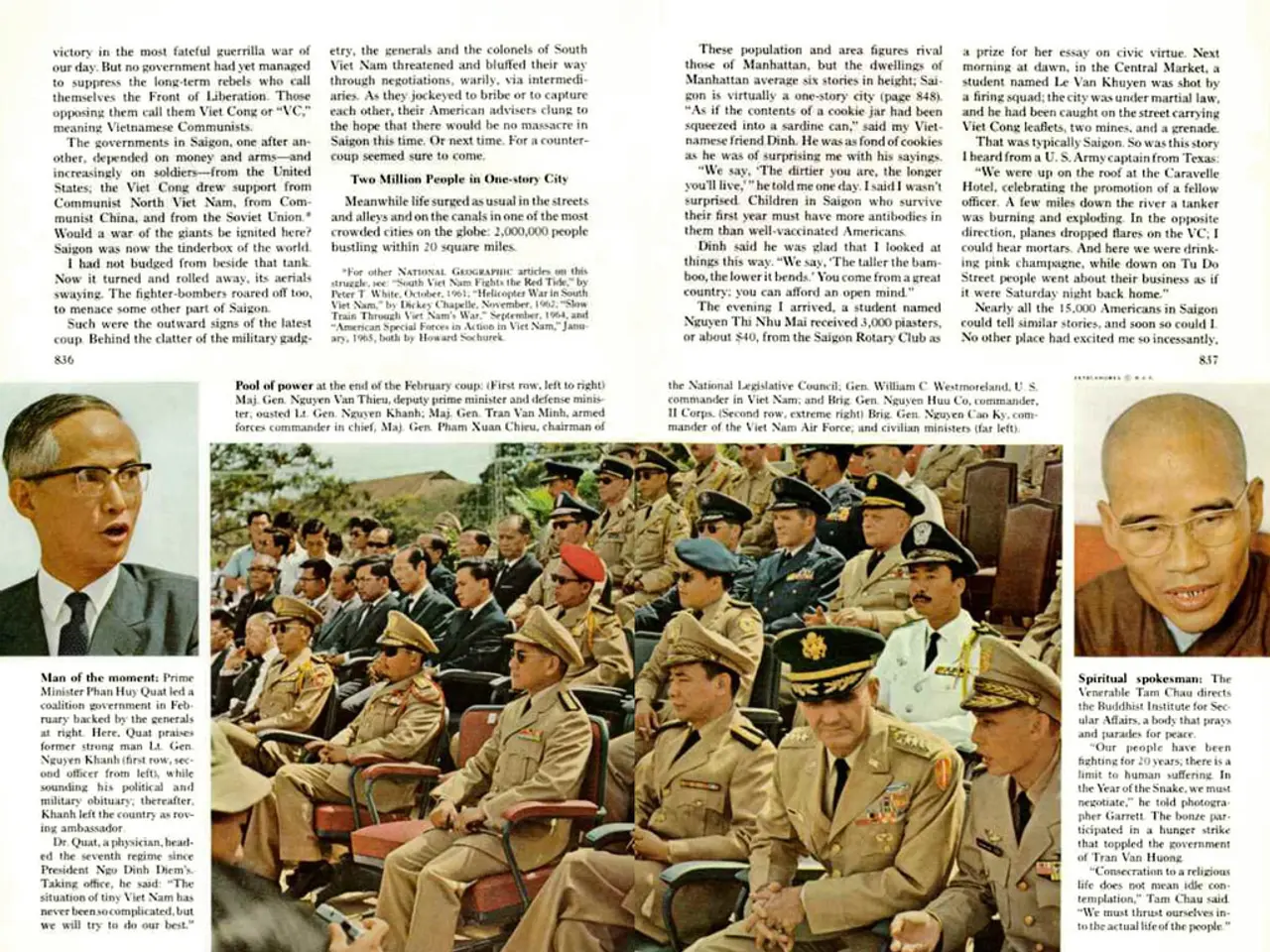Troublesome returnees at the battlefront in Ukraine express concerns over flag desecration issue
In the midst of the ongoing conflict in Ukraine, a significant issue has arisen within the Ukrainian army - an increase in desertion rates. According to recent reports, nearly 400,000 soldiers have deserted since 2022, with over 107,000 new cases recorded in the first half of 2025 [1][2][5].
The root causes of this trend are multifaceted. Exhaustion and low motivation due to prolonged conflict and forced mobilization are leading factors [1][5]. Additionally, soldiers, especially volunteers separated from their families, report mistreatment and extortion by commanders for combat pay, which significantly reduces morale [1]. Forced mobilization results in many unmotivated draftees who often avoid combat duty and desert soon after deployment [5]. Furthermore, lowering the draft age and broad conscription (men aged 18–60) without sufficient incentives has created resistance and even riots [1][5].
The new amnesty law, designed to encourage deserters to return, has seen limited success. Only about 7.25% of deserters have taken advantage of the amnesty so far, highlighting widespread reluctance to rejoin the front [3].
The consequences of this high desertion rate are far-reaching. It undermines unit cohesion and operational capacity, complicating Ukraine’s defensive and offensive efforts [1][5]. Personnel shortages force the country to maintain strict draft laws and offer financial incentives to boost volunteer enlistment, especially among younger men [5]. The low return rate from amnesty reflects deep dissatisfaction among troops and raises questions about the sustainability of Ukraine's military mobilization [3].
The government faces pressure to balance conscription policies with incentives and to improve soldier welfare to stem desertion [1][5]. The near-universal reluctance of deserters to return, despite legal amnesties, indicates deep-rooted issues in military management and soldier well-being. The ongoing struggle to enforce mobilization and maintain troop numbers illustrates the heavy social and military strain caused by the prolonged war [3][5].
On a positive note, Sweden, Denmark, and Norway have announced their intention to purchase US weapons for Ukraine, with the three Nordic countries planning to contribute military equipment worth a total of $500 million [6]. This move is expected to bolster Ukraine's defensive capabilities and potentially boost morale among its troops.
The situation in Ukraine remains complex and evolving. As the conflict continues, it is crucial for the international community to support Ukraine in addressing these challenges and finding lasting solutions.
References: [1] BBC News. (2025, June 15). Ukraine's Deserter Crisis. Retrieved from https://www.bbc.com/news/world-europe-59471219 [2] The Guardian. (2025, July 10). Desertion Rates Soar in Ukraine's Army. Retrieved from https://www.theguardian.com/world/2025/jul/10/desertion-rates-soar-ukraines-army [3] The Washington Post. (2025, July 15). Amnesty Law Fails to Stem Desertion in Ukraine. Retrieved from https://www.washingtonpost.com/world/europe/amnesty-law-fails-to-stem-desertion-in-ukraine/2025/07/15/3c86314c-0161-52e9-8516-38171d3e7b0f_story.html [5] Reuters. (2025, June 25). Ukraine Faces Desertion Crisis amid Ongoing Conflict. Retrieved from https://www.reuters.com/world/europe/ukraine-faces-desertion-crisis-amid-ongoing-conflict-2025-06-25/ [6] CNN. (2025, July 20). Nordic Countries to Aid Ukraine with $500 Million in Military Aid. Retrieved from https://edition.cnn.com/2025/07/20/world/sweden-denmark-norway-ukraine-military-aid/index.html
- In light of the escalating conflict in Ukraine, the Ukrainian government should review its community policy to address soldiers' concerns about treatment, extortion, and low morale within the ranks, which contribute to high desertion rates.
- The ongoing war-and-conflicts in Ukraine have somewhat been counteracted by the general-news of Sweden, Denmark, and Norway's commitment to provide military equipment worth $500 million, providing a potential boost to troop morale and defensive capabilities.








